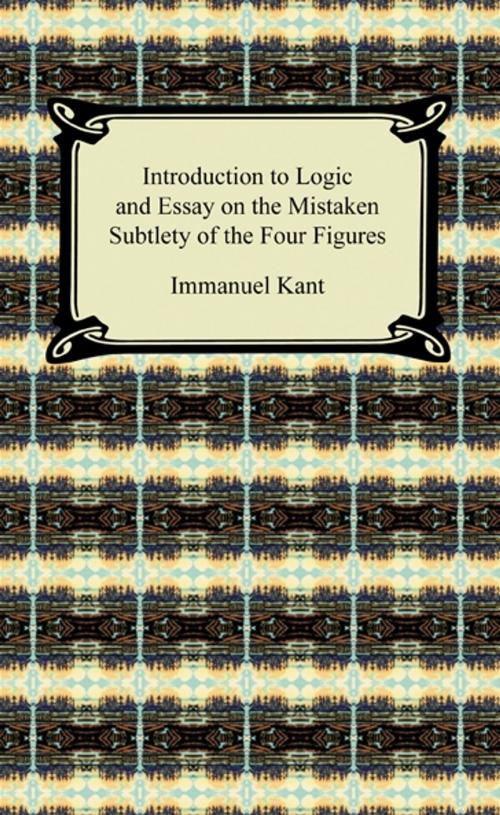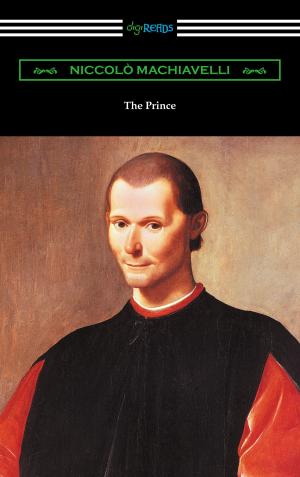Kant's Introduction to Logic and Essay on the Mistaken Subtlety of the Four Figures
Nonfiction, Religion & Spirituality, Philosophy, Logic| Author: | Immanuel Kant | ISBN: | 9781420940206 |
| Publisher: | Neeland Media LLC | Publication: | December 15, 2009 |
| Imprint: | Digireads.com Publishing | Language: | English |
| Author: | Immanuel Kant |
| ISBN: | 9781420940206 |
| Publisher: | Neeland Media LLC |
| Publication: | December 15, 2009 |
| Imprint: | Digireads.com Publishing |
| Language: | English |
Arguably the most influential western philosophical mind since Aristotle, Immanuel Kant was born in 1724 in the Köningsberg, a city in Eastern Prussia where he would live his entire life. A lifelong academic, at sixteen years old Kant entered the University of Köningsberg, where he would go on to tutor for nine years, and then teach. Kant's major concerns involved both religion and science, as he sought reconciliation between the two. His writings on metaphysics and science played a major role in Enlightenment thought. In the field of epistemology, Kant also presented the idea that knowledge lies within the observer, not the object itself. He would never leave Köningsberg, but his ideas were exported all over the world. The actual events of Kant's life pale vastly in magnitude when contrasted against his advances in thought pertaining to epistemology, religion, law, and history. Any student of philosophy will find this volume, which includes Kant's introductory writings on logic and an "Essay on the Mistaken Subtlety of the Four Figures", a worthy addition.
Arguably the most influential western philosophical mind since Aristotle, Immanuel Kant was born in 1724 in the Köningsberg, a city in Eastern Prussia where he would live his entire life. A lifelong academic, at sixteen years old Kant entered the University of Köningsberg, where he would go on to tutor for nine years, and then teach. Kant's major concerns involved both religion and science, as he sought reconciliation between the two. His writings on metaphysics and science played a major role in Enlightenment thought. In the field of epistemology, Kant also presented the idea that knowledge lies within the observer, not the object itself. He would never leave Köningsberg, but his ideas were exported all over the world. The actual events of Kant's life pale vastly in magnitude when contrasted against his advances in thought pertaining to epistemology, religion, law, and history. Any student of philosophy will find this volume, which includes Kant's introductory writings on logic and an "Essay on the Mistaken Subtlety of the Four Figures", a worthy addition.















